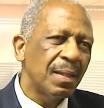'RESPECT THE LAW AND THE PRINCIPLES OF THE CONSTITUTION'
The front page editorial in the Sunday Times of 22 March 2009, which appeared under the heading 'Killing the dream to save one man', cannot be left unchallenged.
As for the content, we agree that any person being charged in the criminal justice system is innocent until proven guilty.
For the rest of the article, that constitutional and legal principle is cast aside and the point of departure seems to be that ANC President Jacob Zuma is guilty until he proves himself innocent.
Let me refer to a number of principles that should, in my view, guide this discussion. We live in a constitutional state where disputes, such as the one that we are referring to, are placed before the court for a decision. Both parties, being the state and Zuma, are supposed to appear before such a court with equal rights.
Let us, for a moment, look at the history of this moment, and which "rights" have been exercised by the State:
- The National Prosecuting Authority (NPA) states publicly that it is not going to prosecute Zuma.
- The NPA changes its mind and decides to prosecute him.
- The NPA loses some of the legal disputes in this matter (the Nicholson judgement).
- The NPA exercises its right to appeal the above judgement.
- The NPA exercises the opportunity to comment to the media repeatedly on this matter.
- The NPA raids certain of the premises where it is of the view that relevant documentation is to be found.
- The NPA does not exercise the option of charging others alleged to have been involved in this matter.
- Making public remarks about the matter, including that, whatever the courts decide, the head of the NPA will always believe in Zuma's guilt.
In such an environment Zuma and his legal team are criticised for:
- Challenging the NPA, and the former Directorate of Special Operations (DSO), on a number of legal principle.
- Appealing decisions by courts at various levels.
- Requesting that the matter be placed before the Constitutional Court.
- Making representations to the NPA.
It boggles the mind that whilst it seems acceptable for the NPA to change its mind and exhaust all their possible legal remedies, it is portrayed as an offence by Zuma to do exactly the same. In a dispute between two parties, both parties have the right to exercise all their legal rights and potential remedies to settle a matter.
In a matter of such national and international importance, it is of the utmost importance that the NPA acts in such a way that its actions are above reproach, and that no suspicion exists that has neither encouraged media attention to the matter nor acted outside the spirit of section 179(5) of the Constitution, namely that it should execute its duties "without favour, fear or prejudice".
It would be helpful if, in such an atmosphere, the NPA could state clearly and publicly that there has never been any discussions or communications between political office bearers and its senior officials that could be construed as outside the confines of 179(5).
Inasmuch as any defendant in a criminal case has the right to have a case against him proven without reasonable doubt, there should, in addition, be no doubt whatsoever that the NPA, at all times, act within the letter and spirit of the relevant Acts and the Constitution.
In this case, one will have great difficulty to come that conclusion without nagging doubts.
There are a number of lessons to be learnt from this exercise. Some of them are:
•· Further legal content needs to be given to section 179(5) of the Constitution.
•· Consideration must be given to the period of time that a person can be under suspicion without being charged.
•· The whole process of gathering information and what would constitute a legal search should be clarified.
•· The process of making representations before and during a criminal case to the NPA must be clarified.
•· Legislation regarding public statements by the NPA before and during a case should be considered.
In all of the above there are areas of legal vagueness that can be enlightened.
In summary: If a person is deemed to be innocent until proven guilty, the whole of society should respect that. In addition, an accused in a criminal case can, like the prosecution, exercise all its legal and constitutional rights to clarify matters and challenge assumptions.
Issued by the African National Congress, March 24 2009
Click here to sign up to receive our free daily headline email newsletter

